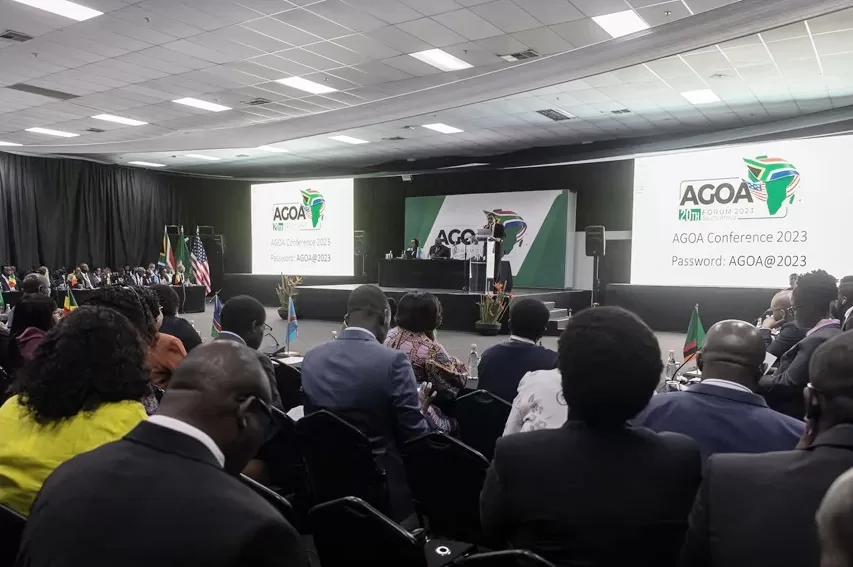The African Growth and Opportunity Act (AGOA) Forum in South Africa provided a platform for the U.S. Deputy Secretary of Commerce, Don Graves, to engage with African stakeholders and highlight the importance of fostering US-Africa economic partnerships.
Graves emphasized the Biden-Harris administration’s commitment to promoting inclusive economic growth, with priorities in trade, sustainability, and clean tech.
Additionally, the administration focuses on the digital economy, cybersecurity, and nurturing the creative industries to strengthen economic partnerships.
AGOA, established in 2000, is crucial for the US-Africa trade and economic ties, fostering relations and commerce between the two.
While the future reauthorization of AGOA is a concern, Graves expressed confidence in Congress’s bipartisan support for the initiative.
“What to keep in mind is that we’re just tapping into the potential of AGOA right now and it’s why we were so excited by the African Continental Free Trade Area(ACFTA) that was – that has also recently been put into place.
“This is allowing U.S. companies to invest in one part of the continent and tap into suppliers all across the continent.
“So we think that Congress will pass this. There’s wide bipartisan support, and they’ll do it because they know that it’s good for Africa and the American economy,” she stated.
US – Africa Trade Priorities
AGOA has driven substantial growth, enabling 75 new commercial deals between the U.S. and African nations, valued at $5.7 billion.
One of the main topics of discussion at the Forum was the identification of U.S. market priorities in Africa.
According to Graves, the top imports from Africa into the U.S. in 2020 included vehicles, machinery, chemicals, fruits, nuts, and wine.
On the other hand, U.S. exports to Africa primarily consisted of machinery, aircraft, vehicles, cereals, and plastics.
However, the U.S. seeks to expand its market presence in sectors such as sustainability, clean technology, digital economy, cybersecurity, and the creative industries.
These priorities align with President Biden’s vision for enhancing trade relations with African countries.
The U.S. is keen on supporting Africa’s growth and development, with a focus on infrastructure, supply chain resilience, and workforce capacity building.
The Deputy Secretary emphasized the importance of U.S. companies investing in Africa’s manufacturing capacity.
She said this helps build a stronger middle class on the continent, and creates opportunities for American businesses to prosper.
This approach is seen as mutually beneficial, as it allows African nations to advance their industrial development while providing a broader customer base for U.S. goods and services.
Unleashing Economic Potential
AfCFTA, which has recently been put into place, is a significant development that complements AGOA.
AfCFTA allows U.S. companies to invest in one part of the continent while accessing suppliers across the entire continent.
This regional integration promotes economic growth and offers substantial opportunities for American businesses to expand their presence in Africa.
A crucial aspect of the U.S. strategy is to support the private sector’s role in addressing global challenges.
Private sector partners play an essential role in driving economic growth and providing solutions to pressing issues.
The U.S. government’s comprehensive approach aims to create a once-in-a-generation opportunity for African communities to reach their economic potential and for U.S. companies to thrive.
Dialogues at the AGOA Forum highlighted the dedication of the U.S. and African nations to fostering fair and inclusive growth.
Trade policies are not for benefiting the top tier; but ensuring all segments of society benefit from global economic growth.
The emphasis is on creating an economy that works for everyone and supporting economic growth across various sectors.
Graves also highlighted the significance of the African diaspora in the United States, representing a unique source of competitive advantage.
The Global Diversity Export Initiative aims to harness this advantage to promote economic growth and international US-Africa trade.

